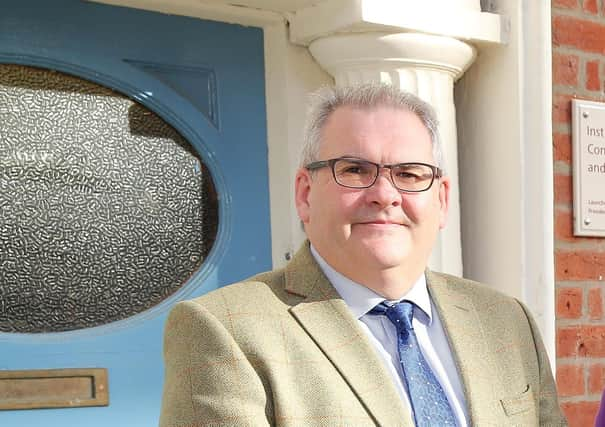Protocol a ‘major opportunity’ for Derry/Donegal but tensions must be recognised, academics conclude


Academics at the University of Liverpool’s Institute of Irish Studies emphasise, however, that tensions around the displacement of trade need to be addressed by the backstop measure’s signatories.
‘The Ireland/NI Protocol: Responding to Tensions or Enacting Opportunity?’ is an in-depth analysis authored by Prof. Peter Shirlow, Michael D’Arcy, Alison Grundle, Jarlath Kearney and Prof. Brendan Murtagh.
Advertisement
Hide AdAdvertisement
Hide AdThe paper - as well as arguing for forward-looking solutions to the difficulties created by Brexit - notes cross-border cooperation initiatives in the Derry and Donegal region.
In a section entitled ‘Spatial alignment and the Protocol economy’ it refers to how ‘the Regional Spatial and Economic Strategy for the NW Issues Paper in the Republic has defined Derry/Londonderry-Strabane-Letterkenny as a city region; and Derry and Donegal Councils had previously advocated a Cross-Border Free Trade Zone, which would eliminate the need for customs checks and tariff controls.’
“The Protocol offers distinct opportunities and presents specific sectoral and area based challenges that need to be addressed with a more tailored approach, bespoke to the potential, resources and assets of the border region as well as NI as a whole,” write Shirlow et al.
The report makes three propositions:
1. The Protocol creates unique opportunities to sustain peace underpinned by shared prosperity.
Advertisement
Hide AdAdvertisement
Hide Ad2. There are evident political and social tensions to be tackled.
3. Pragmatic political resolve can find solutions to unlock those opportunities and tackle present tensions. The removal of the latter reinforces the former.
Its authors state: “The opportunities for NI, GB and Ireland, are contingent upon parallel factors: (i) the outcome of present UK and EU negotiations; and (ii) the role of the Belfast/Good Friday Agreement institutions in framing and invigorating the next stage of a sustainable peace dividend. Delivering on the long-term opportunities depends on choices made by political actors, the business sector and civic society. Despite the disruption caused by Brexit, the Protocol provides conditions for economic and social growth and revival. Peace can and will be bolstered by shared social prosperity and sustainable economic growth. Strategic leadership is now required.”
The report frames the Protocol as a process and laments that not enough attention has been drawn to the accountability measures built into it.
Advertisement
Hide AdAdvertisement
Hide Ad“The Joint-Working Committee that oversees the Specialised Committee and Joint Consultative Working Group is a decision-making forum with the sub-committees of Parliament providing for tests of accountability and the impact of application,” it states.
Equally, the House of Lords European Affairs Sub-Committee on the Protocol on Ireland and NI is cited as a forum where concerns can be raised.
“There is insufficient media and public awareness that the Protocol is fluid, and framed by on-going negotiation, consultation, consent mechanisms and monitoring structures. These structures, as noted, are opportunities to voice evidence regarding the Protocol and present opportunities for both representative and deliberative democracy.”